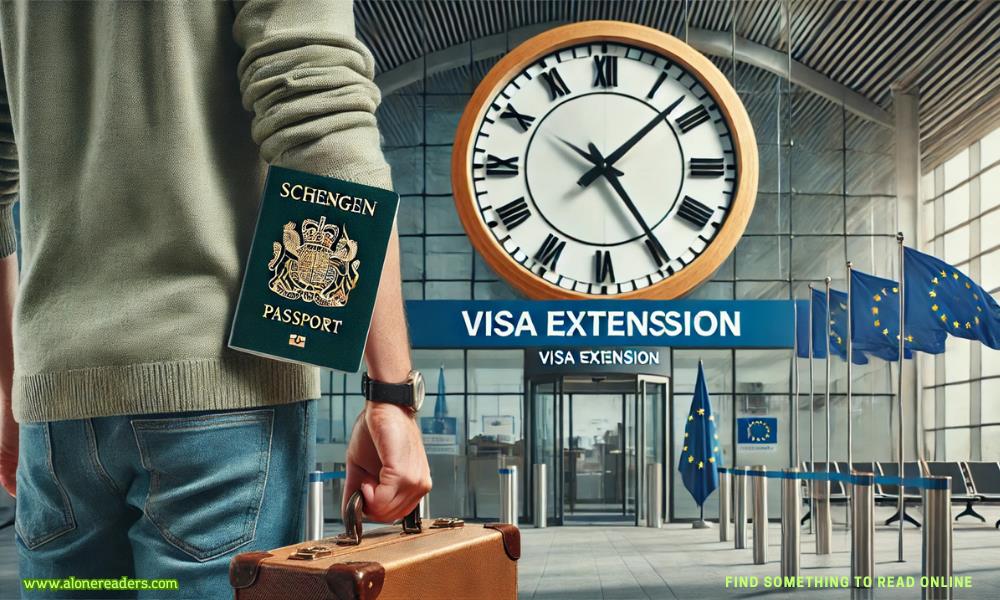
The Basics of a Schengen Visa
A Schengen visa is a short-stay visa that allows travel within the Schengen Area for up to 90 days within a 180-day period. It is designed for tourism, business, or family visits. Unlike long-stay visas, the Schengen visa does not automatically grant the right to extend your stay beyond the initial allowed period.
Why Extend Your Schengen Visa?
There are several reasons why someone might need to extend their stay:
For more detailed and updated information regarding visa policies, you can visit the official European Commission’s Home Affairs website.
When Are You Eligible?
Extending your Schengen visa is not a right but a privilege that is granted only under exceptional circumstances. Generally, you may be eligible for an extension if you can prove one of the following:
It is important to note that extensions are evaluated on a case-by-case basis, and the decision rests with the immigration authorities of the Schengen country where you are residing. Always check the specific guidelines provided by the local immigration office.
Documentation Checklist
When applying for an extension of your Schengen tourist visa, you will typically need to submit the following documents:
For further details on the required documentation, consult the Schengen Visa Extension Information page or your local immigration authority’s website.
Additional Requirements
Meeting these requirements is essential for a successful application. Missing or incomplete documentation is one of the common reasons for rejection.
Step-by-Step Process
Extending your Schengen tourist visa involves several steps. Here is a detailed outline of the process you should follow:
Gather All Necessary Documents:
Start by collecting all the required documents as mentioned in the previous section. Ensure every document is up to date and translated into the official language of the country (if required).
Contact the Local Immigration Office:
Before your current visa expires, schedule an appointment with the local immigration office or the competent authority in the Schengen country where you are staying. Many countries require you to book an appointment online, and you can often find this option on the official European Commission’s Visa and Immigration page.
Complete the Application Form:
Fill in the extension application form accurately. Double-check your information, as any errors can delay processing or lead to rejection.
Submit Your Application:
Submit your application along with all the supporting documents in person at the immigration office. In some cases, you might be required to provide biometric data or undergo an interview.
Pay the Application Fee:
An administrative fee is generally charged for processing a visa extension. The fee can vary by country, usually ranging from €100 to €200. Confirm the exact amount with the local authorities before you submit your application.
Wait for a Decision:
Processing times can vary. In urgent cases, some countries may offer expedited processing, but this is not guaranteed. Stay in regular contact with the immigration office if you experience delays.
Receive Your Extension Approval:
If approved, you will receive an official document or an endorsement in your passport that specifies the new expiry date of your visa. Ensure that you keep this document safe, as you will need to present it during any future interactions with immigration authorities.
Submission Tips
For more detailed guidance on applying for an extension, check the local guidelines on the European Commission’s Home Affairs website.
Understanding the Duration
The duration of the extension granted can vary widely based on the circumstances of your application. Typically:
Remember, the total duration of your stay (original visa period plus the extension) should still be justified by your stated reason.
Fees Associated with the Extension
Visa extension fees are set by individual Schengen countries and can vary. Here are some common aspects to keep in mind:
Always verify the fee structure with your local immigration office or the official government website before submitting your application.
Important Warnings
Extending your Schengen visa is not a routine process, and there are several important cautions to keep in mind:
Legal Consequences
If your extension request is denied and you continue to stay in the Schengen Area beyond the permitted period, you risk:
It is crucial to adhere strictly to all guidelines and to consult with an immigration lawyer if you have any doubts or complex circumstances.
Prepare Thoroughly
Documentation Tips
Follow-Up
Conclusion
Final Thoughts
Extending your Schengen tourist visa in 2025 is a process that requires careful preparation and strict adherence to the rules and regulations established by the Schengen Area. Whether your need for an extension arises from a medical emergency, humanitarian reasons, or unforeseen disruptions, it is essential to start the process early and ensure that all documentation is complete and accurate.
In summary:
By following the guidelines outlined in this article and consulting official resources such as the European Commission’s Home Affairs website, you can navigate the extension process more confidently and reduce the likelihood of complications.
Remember, every Schengen country may have slight variations in its procedures. Therefore, always verify the local requirements and, if in doubt, seek professional assistance to ensure that your stay remains lawful and stress-free.
With proper preparation and a clear understanding of the rules, extending your Schengen tourist visa can be a manageable process—even in a complex regulatory environment. We hope this guide helps you successfully secure the extension you need and enjoy your extended stay in Europe.
Safe travels and best of luck with your application!